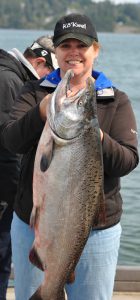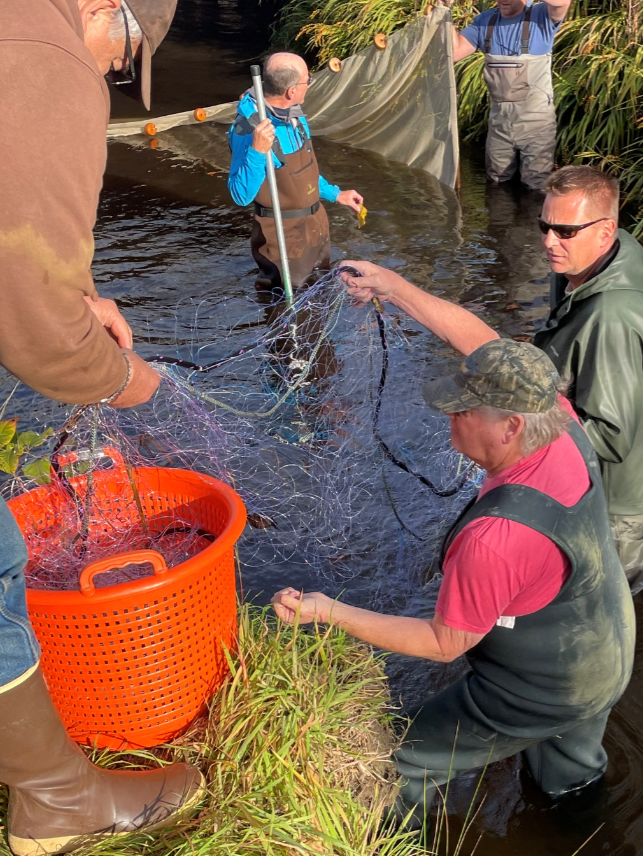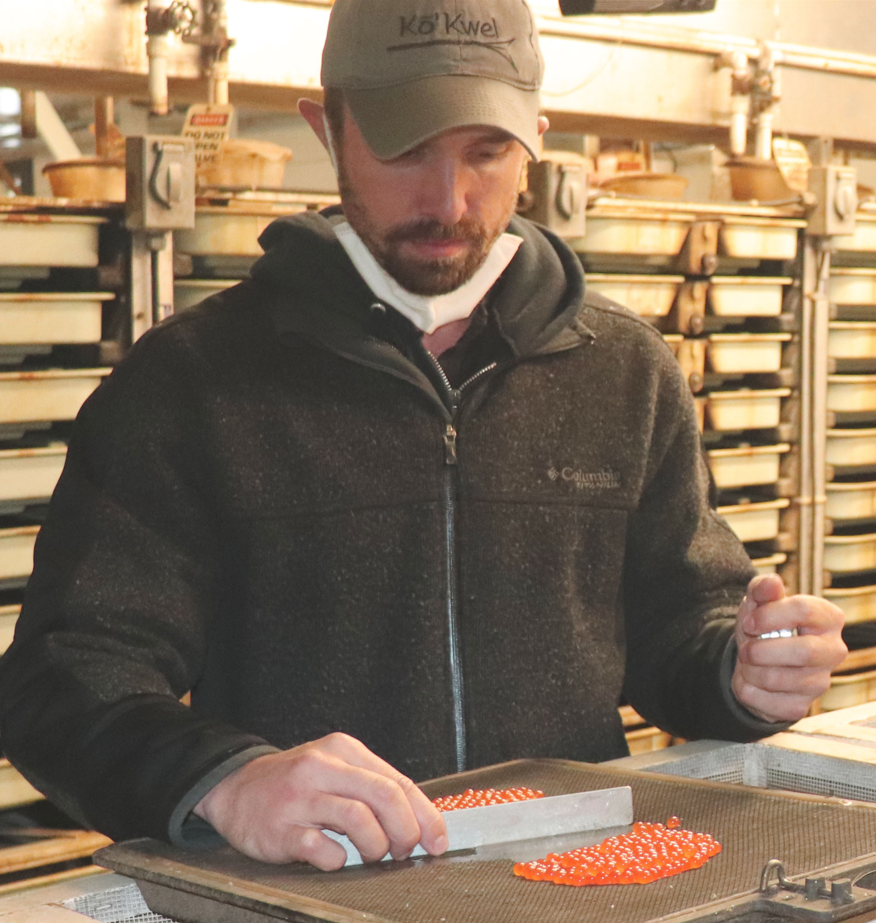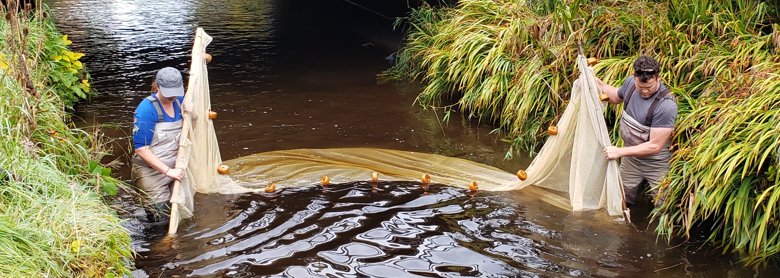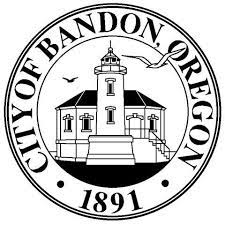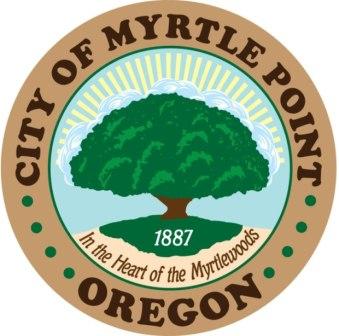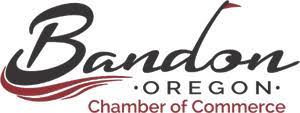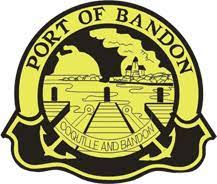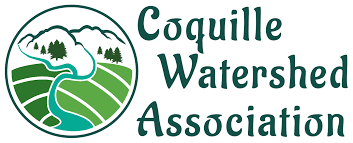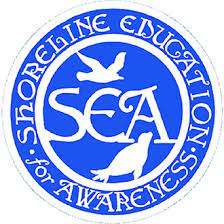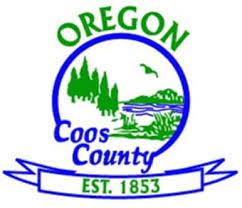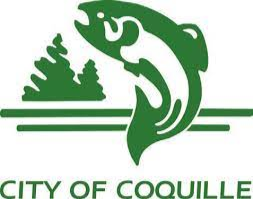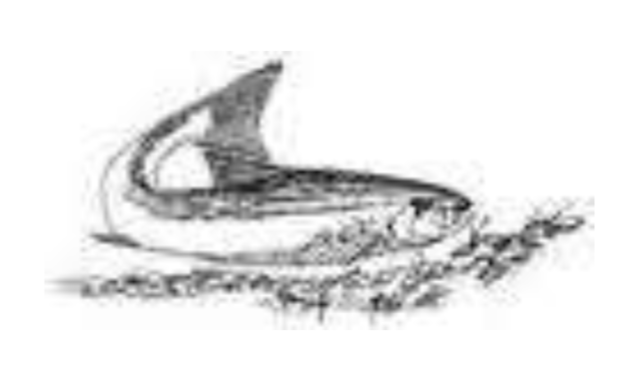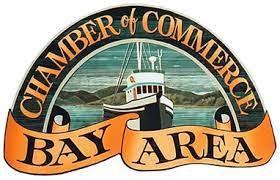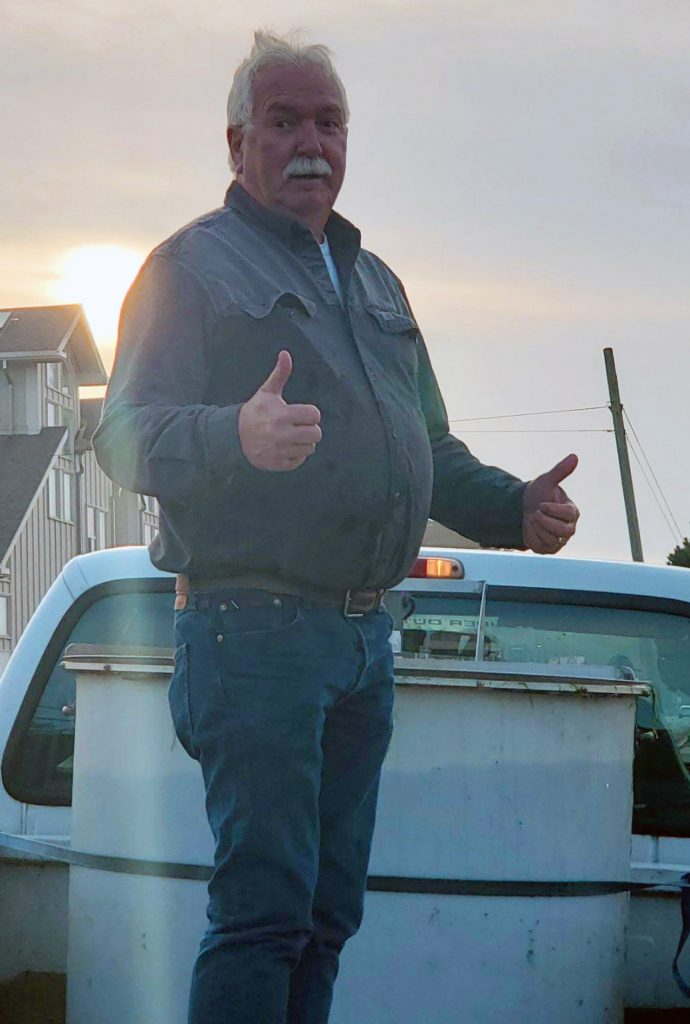
A hopeful start for 2021 spawning
Coquille River salmon run needs robust brood stock
BANDON – A rarely used technique gave a welcome boost to early prospects for successful salmon spawning in the Coquille River.
Coquille Indian Tribe employees and community volunteers gathered Tuesday, Sept. 28, in downtown Bandon, where Ferry Creek enters the Coquille River. Using a wide net, they corralled six adult Chinook salmon for delivery to the Bandon Hatchery.
“As we know, the numbers of returning fall chinook have drastically declined to record-setting lows,” said Helena Linnell, the tribe’s biological operations and planning manager. “And so, the effort to secure brood stock is vitally important to making sure that this fishery continues into the future for the next seven generations.”
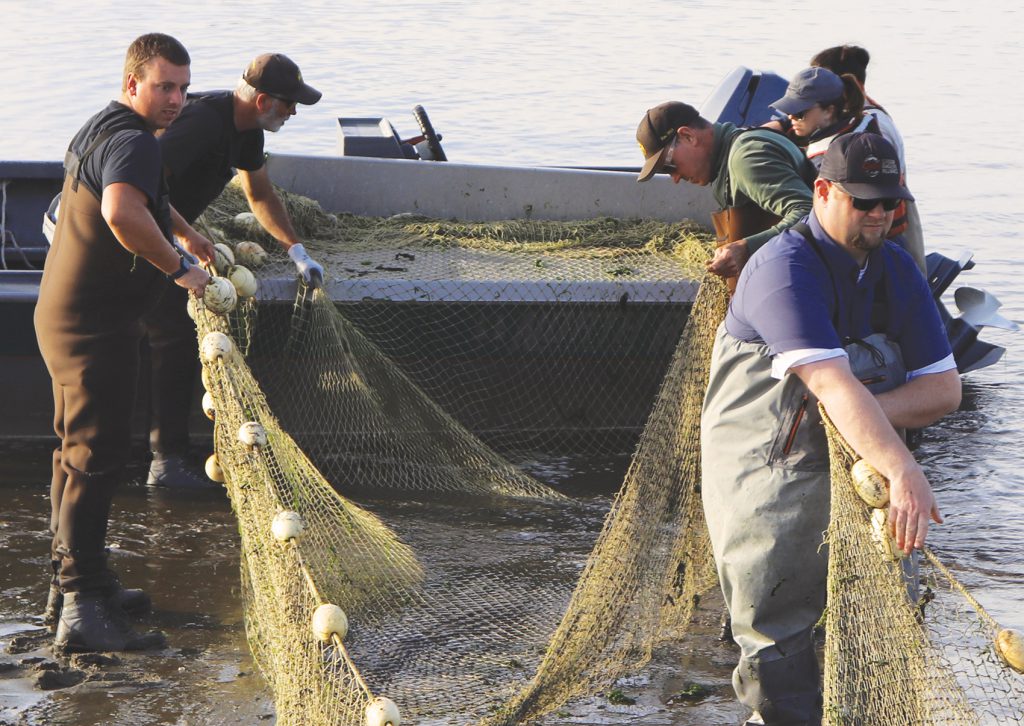
Above, Tribal Council member Don Garrett celebrates a successful evening of salmon seining.
At left, volunteers haul in the net.
Last year, just 16 fall Chinook reached the Bandon Hatchery to spawn. Linnell called this week’s event “a great first step.” She and other officials hope the six captured fish are the vanguard of a more robust 2021 spawning season.
Fall Chinook salmon have grown so scarce on the Coquille River that the Oregon Department of Fish and Wildlife allowed no Chinook fishing this year. The tribe, alarmed by the salmon run’s decline, recently proposed to co-manage the salmon fishery, offering its own resources to augment ODFW’s budget.
The Sept. 28 event was an example of increasing collaboration to save the fall run. The occasion attracted an assortment of tribal employees and community volunteers, including local port officials and members of the Oregon Anglers Alliance. ODFW provided a specially equipped boat, the net, and a truck carrying a holding tank.
The net, known as a seine, is long and narrow, with floats at its top and weights on its bottom. Linnell and a helper deployed it from a boat, and men in waders dragged it through the shallows. They formed a moving, flexible fence, slowly herding the fish toward shore.
With the salmon increasingly boxed in, team members gently caught each fish in a landing net. Then they hustled it up the beach to the truck. The six salmon were deposited in the Bandon Hatchery’s holding pond, about two miles upstream.
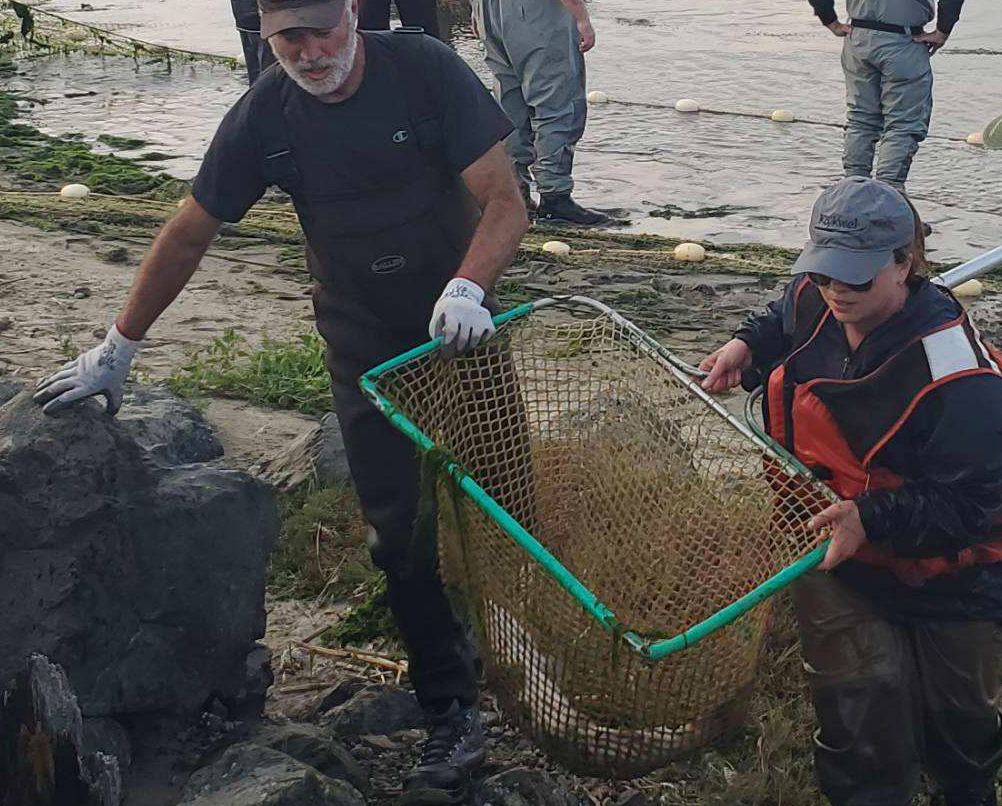
Tribal biologist Helena Linnell, aided by Bandon Port Manager Jeff Griffin, totes a salmon to a holding tank.
Seining salmon for brood stock is an unusual tactic in salmon management, and using it shows just how concerned biologists are about the Coquille River’s fall run. With increased water temperatures and predatory seals to contend with, fish that gather at the mouth of the creek might or might not reach the hatchery on their own.
“We had the opportunity to take some of those early returners and get them out of an inhospitable situation,” said tribal Chairman Brenda Meade.
Meade, whose ancestors regarded salmon as their own seagoing cousins, was delighted by the season’s hopeful start.
“It was the first sign of our relatives returning,” Meade said.
The bulk of the fall run normally comes in early October. As the spawning season proceeds, the Coquille Indian Tribe plans to recruit and deploy more volunteers.

